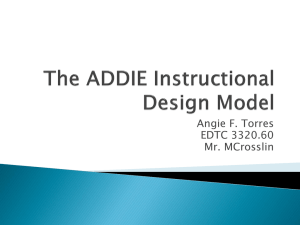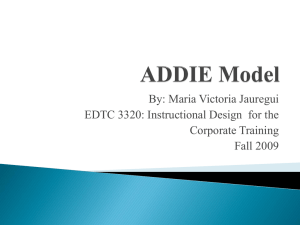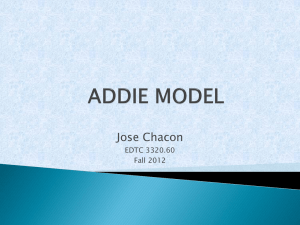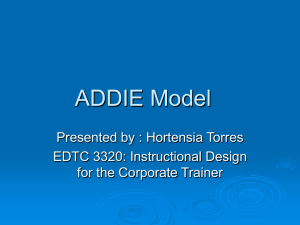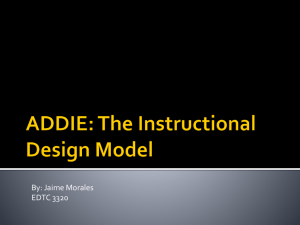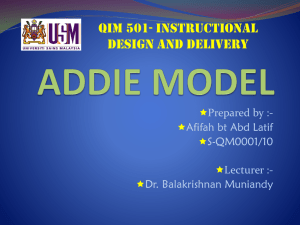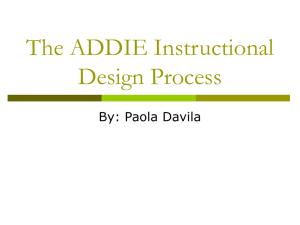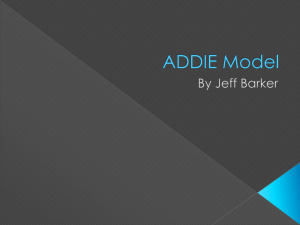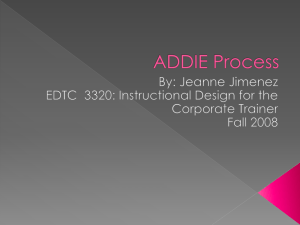ADDIE Instructional Design Model
advertisement
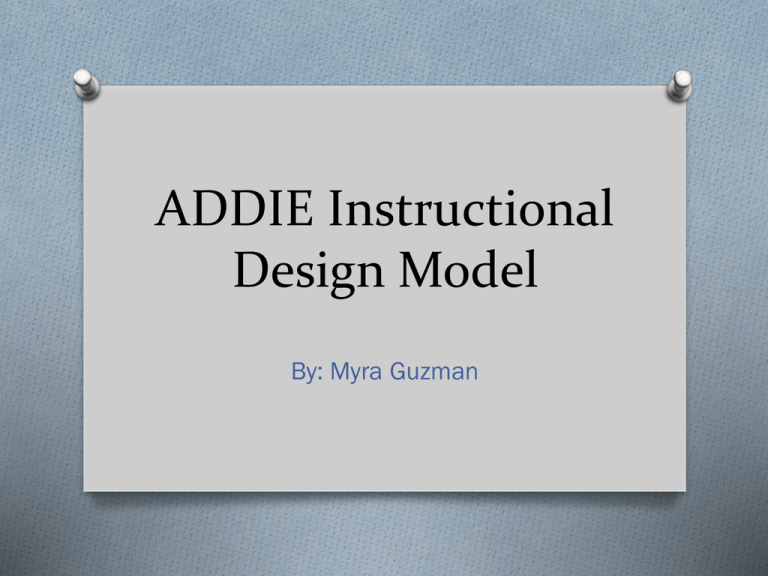
ADDIE Instructional Design Model By: Myra Guzman Introduction The ADDIE Model Defined The ADDIE model is a systematic instructional design model consisting of five phases used to design a well plan lesson. O D- design O A- analysis O D- development O I- implementation O E- evaluation Who uses the ADDIE model? The ADDIE model is usually used by college professors, teachers in EC -12 grade levels, company trainers, students, and any other person who wants to develop an organized and well plan lesson for presentation. The Phases of the ADDIE Model Analysis O During the analysis phase, the designer identifies the learning problem , how the problem arose, solutions for the problem, the learner’s needs, if there is any existing knowledge, and any other helpful learning characteristics. Also taking into consideration the learning environment and the time given for the presentation. Phase- two Design O In this phase the analyze outputs are used to develop learning objectives for the lesson. An outline is made on how to reach instructional goals that were determined during the analyze phase. The way the lesson will be presented, the look of the overall content and its graphic design is determined. Phase- three Development O The development phase is made up of both the analyze and design phase. The development of the instruction , its content, all media to be used in the instruction, all learning materials, and any other supporting documentation are created in this phase. Phase- four Implementation O In this phase the actual lesson plan is put into action. The presenter is ready to deliver the instruction to the learner and all materials are distributed or demonstrated to the learners . Phase - five O Evaluation In this phase is where the overall lesson is evaluated. Which consists of two evaluations , formative and summative evaluation. Formative evaluation is present in each stage of the ADDIE process. Which helps before the actual lesson is delivered. Summative evaluation occurs after instruction and consists of tests designed for criterion-related referenced items and providing opportunities for feedback from the learners. The risks of skipping steps: O Skipping one step may cause a not very good creation of the instruction throughout the entire process. O The errors will be noted by others while conducting the lesson or presentation. O Will not have a positive learning outcome. Conclusion There are many other design models out there that can help in the development of an instructional lesson, but non are as easy to follow as the one viewed in this power point presentation. Follow the steps to this instructional model and you will have a successful learning outcome. References O ADDIE Instructional Design Model. (2007-2012). Retrieved from http://www.about-elearning.com/addieinstructional-design-model.html O Learning Theories Knowledgebase (2011, September). ADDIE Model at Learning-Theories.com. Retrieved September 18th, 2011 from http://www.learningtheories.com/addie-model.html O The ADDIE Instructional Design Model a Structured Training Methodology. (2004-2010). Retrieved from http://www.intulogy.com/addie/ O www.microsoftdesigngallery.com
